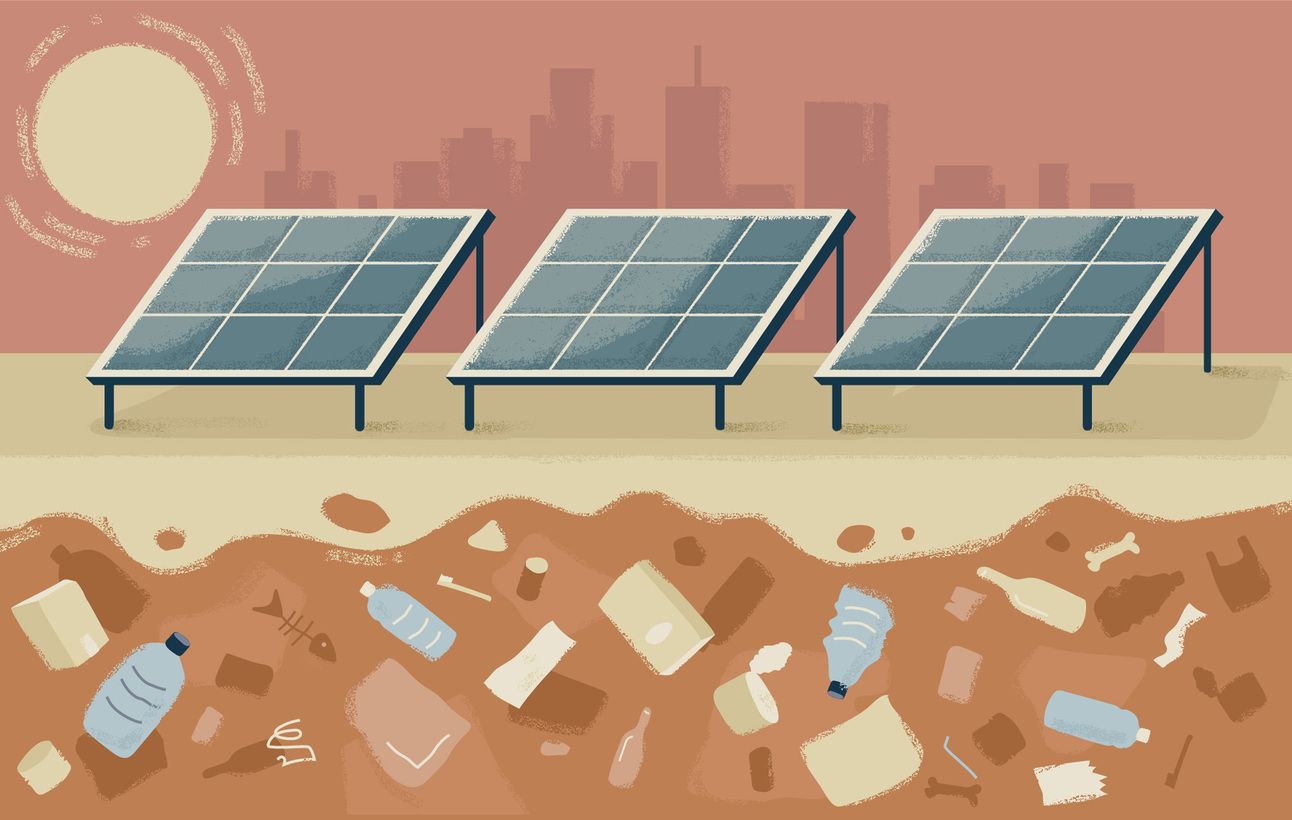- The Progress Playbook
- Posts
- Newsletter (copy 06)
Newsletter (copy 06)
A second life for landfills, axed parking mandates, and China's renewables bonanza

Good morning!
Some good news to get things started:
California now has 6.6GW of battery storage capacity, and it’s expected that another 1.9GW will be added by the end of the year.
Deforestation in the Amazon fell 22% in the 12 months through July.
Namibia has started building Africa's first decarbonised iron plant.
Know anyone else who’d be interested in signing up to this free newsletter? They can do so here.

Old landfill sites are difficult to repurpose, which is why they tend to sit idly for decades. That’s a problem in a world with finite land resources, lots of waste, and ever-growing energy requirements.
With this in mind, some cities and project developers are realising that clean energy and dirty landfills are actually well suited. Plus, landfills tend to be located close to electricity consumption hubs and grid connection points.
The latest: A new 59MW solar farm near Essex, in the UK, was built atop a 5-million-tonne sealed landfill site that’s sat unused for 25 years.
Now, in its second life, the facility will generate enough power for 17,000 homes, and the trash below the soil — which would emit large amounts of planet-warming methane if exposed — will remain untouched.
“We are repurposing land that would otherwise go unused to supply clean power from a source next door to London, where significant demand for renewable energy lies,” said Anthony Doherty, chief investment officer at NTR, the group behind the project.
While one of the largest such projects to date, this certainly isn’t the first.
Earlier in 2023, the first solar plant built on a former landfill site in Latin America was commissioned.
The Solar Pyramid project in Curitiba, Brazil, “serves as an example to cities across Brazil and Latin America of how to deliver clean, affordable energy while reducing a city’s dependence on the urban energy grid, often reliant on fossil fuels,” according to C40, which provided funding for it.
Other solar landfill projects have been completed in the US states of Rhode Island, California and Massachusetts, in Stoke-on-Trent in the UK, and in Germany.
Yes, but: Solar projects on landfill sites are more challenging than conventional ones, because developers must ensure the foundations holding the panels in place don’t pierce the seals covering old trash. That brings extra costs.
The cost per unit of electricity produced is roughly 5% more than a solar farm installed on ordinary land, according to this Bloomberg report. In some cases, the costs are 15% higher.
- Read the full story here.

In early November, Austin became the largest US city to ditch rules that required new developments — including malls, apartment blocks and offices — to have a set amount of parking space.
According to the non-profit Parking Reform Network, more than 1,400 cities in the world’s largest economy have already made similar changes as they seek to free up space for new housing projects, boost foot traffic for small businesses, and tackle car dependency and climate change.
This comes as studies show the benefits of axing parking mandates for both businesses and residents.
Read the full story here.

China’s emissions should fall from 2024 onwards thanks to the blistering rate it’s adding low-carbon energy facilities, a new analysis shows.
That’s good news for the fight against climate change, considering that China is the world’s biggest emitter of planet-warming gases like carbon dioxide.
This year alone, China will add another 210GW of solar, 70GW of wind, 7GW of hydro, and 3GW of nuclear to its grid. Those new facilities will generate enough energy each year to power France, according to the analysis by Lauri Myllyvirta, lead analyst at Centre for Research on Energy and Clean Air (CREA).
Here’s how China got to this point, per the analysis.

Big, grid-scale batteries haven’t been around for long – but they’ve already proven their worth, and the states that pioneered them are being handsomely rewarded.
Other articles you might find interesting:
Have any tips, ideas or feedback for us?
Please contact [email protected].
Follow The Progress Playbook on social media:




Copyright (C) 2023, The Progress Playbook. All rights reserved.Was this email forwarded to you? Sign up here to subscribe yourself.Want to change how you receive these emails?You can unsubscribe
Reply